
More frequent natural disasters
My first encounter with natural disasters
It seems that we are facing more and more extreme weather events all around the world. Severe floods, raging wildfires, hurricanes, and earthquakes have all caused unimaginable damage over the last years. Surviving a natural disaster can be traumatizing to say the least. But the effects of a major life interruption like this can have consequences that last beyond the event itself. The stress, trauma, and loss from surviving a natural disaster can lead to depression, anxiety, and even PTSD in some people.
My first experience with natural disasters happened in July 1994. We had just moved to Canada and were staying in a rental house at the outskirts of town. Since we had no furniture, my parents took us to Zellers to buy a plastic table and chairs for inside and a simple patio set and umbrella for the deck.
The patio set was white, which made this experience even more memorable.
In the morning, we came outside and the patio furniture was covered in a layer of grey dust. Plus, it seemed to be snowing in July! Coming from Europe, we had not had any experience with wildfires at all. This was my very first encounter with ash falling from the sky because of the nearby wildfires.
“While natural disasters capture headlines and national attention short-term, the work of recovery and rebuilding is long-term.”
- Sylvia Mathews Burwell
At night, we spent time on the deck looking at the mountains. We could see spots of fire flaring up, the bright flames clearly visible in the dark. As kids, this was an extraordinary experience. Like something out of a science fiction movie. The sky changed color as the thick smoke rolled in and we watched in awe.

More natural disasters
As I grew older, the feeling of an adventure in an alien land quickly passed. I understood that wildfires were extremely dangerous. The wind conditions could mean loss of homes and loss of life in a matter of minutes and hours. I also began to understand the devastating impact on wildlife and the ecosystem. Whenever fire season started, I became anxious, even though there were no fires near our house.
In 2003, I experienced the worst fire season to date. By the end of August, pretty much everything around us was burning. The closest fire was only about 1 kilometre away. I was supposed to return to university, but stayed at home to help my parents pack up our belongings. For days, I went without sleep, sorting essentials into bins. We needed to get everything ready in case we had to move ourselves and our pets.
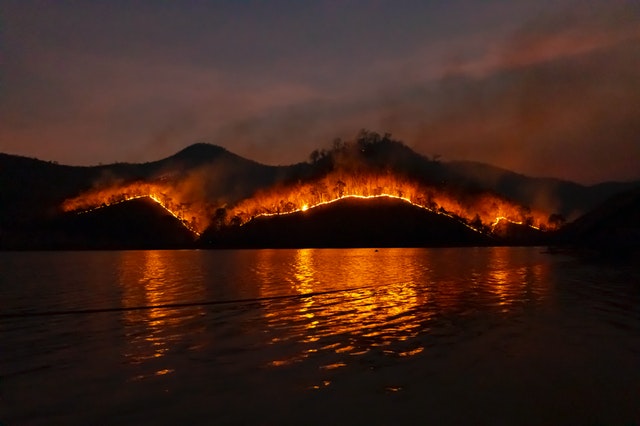
My parents had a business in town, so we started to move all our bins to the office. In case of evacuation, we were going to set up camp at work in town. We organized folding beds and camping showers. I did evacuation drills with my grandparents, who didn’t speak English, and with our dogs and cats. Once our essentials had been moved, my dad and I cut back trees that were too close to the house and started watering everything down.
I can’t even describe the feelings of fear, panic, and helplessness I experienced. And that’s still nothing compared to some of our friends who lost their homes and everything they owned. It’s like we were sitting at home, waiting for the zombie apocalypse to come. We didn’t know if in the blink of an eye, the fire would turn and we would lose our home.

The aftermath
One night, the fire department came to see us and put us on evacuation notice because the fire had moved dangerously close. We all got together in the living room and went through our evacuation drill again. We went to the lake every night and checked if the flames had circled any further around the lake. Luckily, the wind ended up turning, and this never turned into an evacuation order. But, to this day, the summer of 2003 is literally burned into my memory.
Many more fire seasons followed and one year we even had a mini tornado rip through the Provincial Park beside our property. We learned to live with the threat of wildfires during fire season. Some years were better than others, depending on the winter and the amount of snow pack and precipitation. Other years, we had weeks with restrictions for outdoor activities because of the fire danger and thick blanket of smoke.
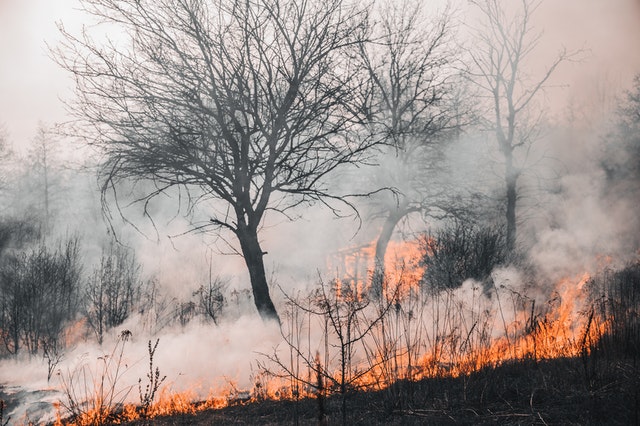
In addition to the fires, we also faced a bizarre flash flood in 2010, the likes of which I have never seen again. The entire office basement flooded nearly 1.5 metres in a matter of hours. We lost all of our stock and a staff kitchen, which was never fully paid for by the insurance company. My husband lost all of his personal items, which were stored in the basement. The journals, books, and photos were irreplaceable.
And yet, my experiences with wildfires and floods are just a tiny window into the devastation people experience when they lose everything in a natural disaster. The 2004 Indian Ocean earthquake and tsunami, the 2010 Haiti earthquake, and wildfires across the globe in the last few years are just a handful of examples. These events change lives forever and have a huge impact on mental health.

How natural disaster affect our mental health
Surviving a natural disaster can have deep impacts on many aspects of our lives. The events can cause stress, sadness, fear, uncertainty, and trauma that are hard to process. Over time, these feelings can develop into anxiety, depression, or PTSD.
You might feel uneasy or anxious when the local fire or rain season starts. After surviving a natural disaster, you might not feel safe in your own home anymore. Or, if you have lost your home, you may experience anxiety and depression if you cannot rebuild and have lost everything. The effects are real and far reaching.
So let’s talk about some of the ways in which natural disasters can impact our mental health.
Losing your home in a natural disaster
If you have major damage to your home, or lose it completely, you can feel more than the effect of a lost “building”. For many of us, “home” is a central place where a lot of our comfort and security is linked. It is the center of our family and the location of many happy memories. That’s not to mention that it serves as a protective place for our most cherished items. And then, it also provides a roof over our head, and a place to live and be safe.
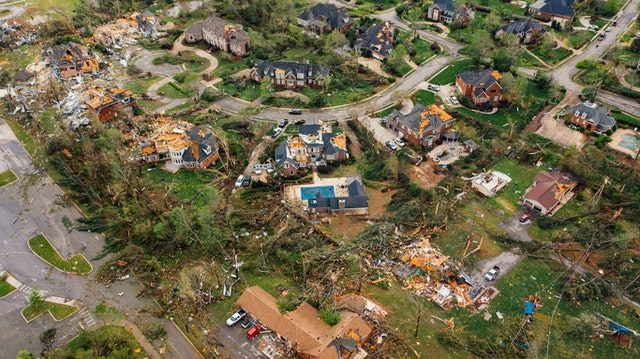
When this usually reliable place of safety is suddenly taken away, the effects can be deeply traumatizing. Most of us build a foundation of trust knowing that “home” will always be a safe place where all our favorite people and things are. When this is shaken, it can almost feel like our foundation and trust is shaken too. Such a sudden loss can leave us questioning the safety of other things we trust or take for granted. Fear can set in with the uncertainty this creates.
If you are living in shelters or hotels because your home was lost or damaged, it can be a difficult disruption to your life. Things may change quickly and you have to adapt and re-build a new life without all the things you lost. This can feel like a loss of identity and can have deeper consequences. This is how the loss of a home can have unimaginably deep consequences on the mind. The fear, loss of identity, and sadness caused by the loss can linger for years and lead to other conditions down the road.
Natural disasters and trauma
Another way in which surviving a natural disaster can affect your mental well-being is through trauma. During the event itself, you may witness some things that are hard to deal with. You may see people and animals in distress. In extreme and unfortunate cases you might even lose loved ones or pets. You may witness someone lose their home, their life, or their beloved pets.
This can be severely traumatizing and can leave deep scars. Processing horrific events like this can be difficult for anyone. People often report having nightmares, flashbacks, and even developing PTSD episodes from events like this. Anxiety disorder, depression and PTSD can all develop from witnessing these kinds of horrific events.
Financial devastation after natural disasters
Another way in which natural disasters can impact your mental health is through the financial strain it can cause. Losing your belongings, your home, or even your job can have a sudden and devastating financial impact on you and your family. Even if there is only damage to your home, insurance may not cover it and you may be responsible for rebuilding your life on your own.
Having to use a lot of credit, borrow money, or accumulate debt can create a lot of stress and anxiety. Even years after the disaster is over, the financial stress can still be impacting your life, your decisions and your health. When the debt you owe is significant, it can direct the decisions you are able to make in your life. You may have to skip a much needed get-away, eat less healthy food, or miss out on medical treatment just because paying your debt down takes priority.

This can lead to neglecting your mental health and general well-being. Financial stress can be significant and can have deep effects on many aspects of your life. Over time it can even create a sense of hopelessness and constant anxiety that impact your mental health in a negative way. You may arrive at a point, where you simply see no way out.
There are many community organizations that help survivors of natural disasters. Government, state, and non-profit organizations can help you get back on your feet. If you have reached a point where you simply see no way out of your situation, it is essential that you go and speak to someone. There are options available and you do not need to carry this burden alone.
Lingering fears after surviving natural disasters
Another less obvious impact a natural disaster can have is leaving the survivors with a constant feeling of uncertainty and fear. When you live through an event that totally disrupts your life, you may be left with the sense that things aren’t certain in your life. The fear and loss you experienced imprints itself on your mind and can impact your future decisions. I know people that never unpacked their valuables after being evacuated because of wildfires. They now feel they are under a constant threat of wildfires and want to be ready to evacuate safely at any moment. The threat remained constant even years after the wildfires.
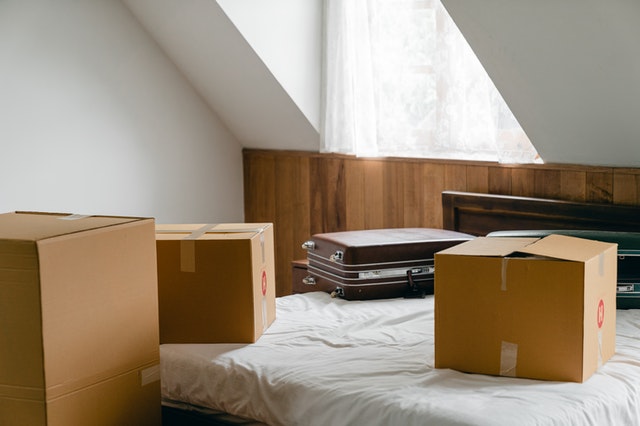
Similarly, people who were injured during a natural disaster might continue to live with a fear of it happening again for the rest of their lives. They could develop a fear of water, fire, or any kind of weather they perceive as a threat. The fear and protective behavior could stay with them years after the initial event and injury. This kind of constant fear and uncertainty can lead to anxiety and even depression over time.
The displacement, loss and fear that natural disasters cause might have deeper impacts than you first realize. When you cannot process a memory, an injury or the loss, your mental health might be deeply affected. Recognizing the different ways in which the event is impacting your life is the first step to getting help. There is no easy way to heal from traumatizing events that derail your life completely. Having the right tools to protect your mental health in the process is key.

What you can do after a natural disaster
When you’re in the middle of a natural disaster you’re usually acting on a survival instinct. For this reason, you may not feel the effects of the experience until you have a chance to slow down and really take in everything that has happened. That’s why it’s important to have support in place for when you need it most.
If you’re starting to feel stressed, depressed, or anxious because of a natural disaster you’ve been through, ask for help and find someone to talk to. This can mean a friend, a family member, your doctor, a mental health professional, or a counselor. It is important to take the time and work through all the emotions that have been brought up.
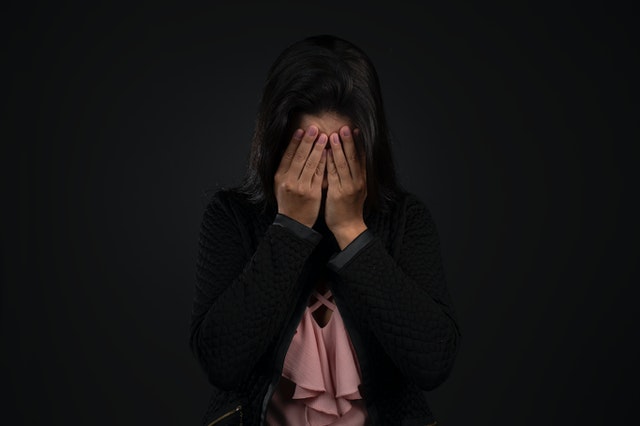
Someone said to me once: “You either make the time to take care of yourself now, or you can make the time to deal with being sick later.” It works along that same idea. When the issues creeping up on you from a natural disaster are not addressed and healed, they can come back later in the form of stress, anxiety, depression, or PTSD. And usually when they come back, they can impact your life in a big way, even to the point where you are unable to cope and function.
Give yourself the room to grieve after a natural disaster
A natural disaster often results in loss. Loss of your home, health, money, or even your mental well-being. Accepting what has happened can be hard when the event happens so suddenly. It is important to take the time to process everything, and understand that everyone’s reaction to grief and loss is unique. You may be feeling some unreasonable feelings, feeling in denial or distracting yourself from the reality of what has happened. Everyone processes things differently and the results are a variety of feelings and emotions. Give yourself the room to go through any of the emotions you need to feel, and again, ask for help if you need someone to talk to.
Support your mental health by supporting your body
In order to let your mind accept and process the stress and grief of a natural disaster, be sure to give your body extra care and love in order to help. Taking care of your physical body will help support your mental health. Make an extra effort to get more sleep and eat more nutritious food. Maybe take the time to do some meditation or relaxation practices throughout your day.
Staying connected to family and friends is also important for coping with the aftermath of a natural disaster. Make sure to video call, hang out, or email regularly in order to stay social and connected. This can help give you more access to support and also gives you an outside perspective to everything you’ve been through.
Rebuild after a natural disaster
If it’s possible, rebuilding can help us process some kinds of losses as well. Depending on what happened, it may or may not be possible. If you do find yourself in a place where you can rebuild what was lost, consider incorporating a part or a memory of the lost home in the new one.
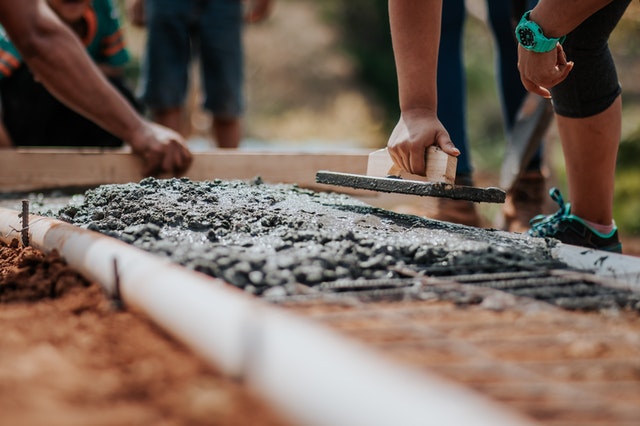
Perhaps it’s just a stone or timber left over from the old home, but working it into the new home can be a symbolic way to pay homage to the memory. Maybe you plan out a similar garden or gate to keep a memory of the old home alive. Either way, working on the process of rebuilding can be a really cathartic way to come to terms with the loss and find some closure to the trauma.
Natural disasters preparedness
If you’re having anxiety about future natural disasters, it might help to make a plan and be prepared. If you take the time to put together an organized plan, your mind may be better able to set the idea aside knowing that the preparation has been done. Seek out some expert advice on how best to prepare yourself, or use online resources to make your plan.
Often, government or community organizations run disaster preparedness workshops that you can attend with your family. They go over getting prepared at home, as well as what to do during and after a natural disaster. It might help to connect with others who are also trying to prepare.
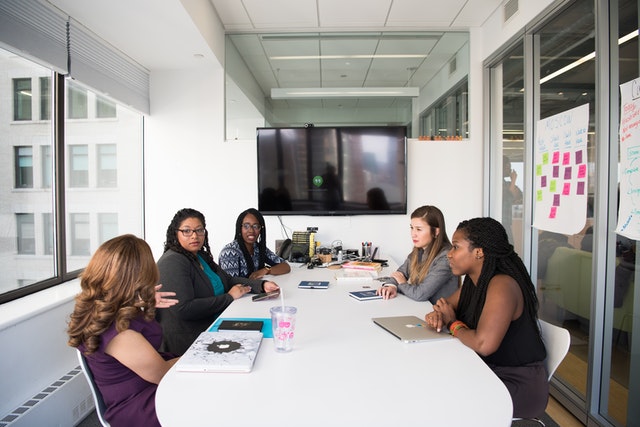
Whenever your anxiety wells up again, you can then remind yourself that you’ve done all you can to prepare and be ready. This can help ease the fear and anxiety of future disasters. Make sure to fill in your family and friends too, so they can also rest easy knowing that a plan is in place.

The Takeaway
Natural disasters are often unpredictable and that makes them so devastating for our mental health. Loss happens in a matter of minutes sometimes and we can have a very hard time processing such drastic changes at this speed. For years, I lived with the fear that our house might burn down one year during the wildfire season. The only thing that helped me cope was being prepared and talking about it with my support network.
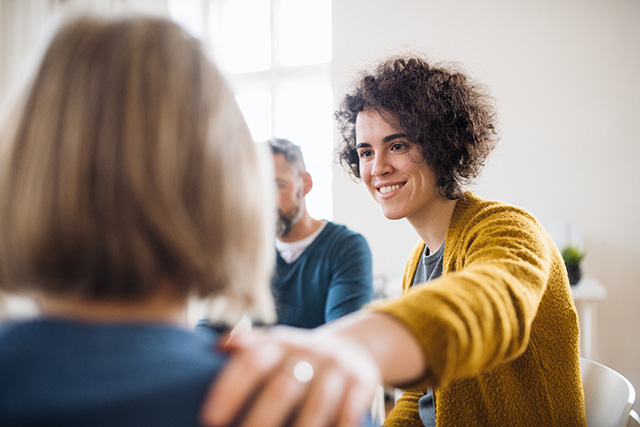
And still the feelings of anxiety and fear persisted every year. Since moving back to Europe, I have been able to decompress, but it goes to show you how impactful natural disasters are. We are not just talking about material and financial losses, but also major consequences for our mental and emotional well-being.
If you have survived a natural disaster, be sure to check in with yourself frequently.
This might sound a little out there, but for me, the effects of that first fire really crept up on me. I didn’t even notice at first, how I carefully surveilled the sky for smoke, or checked the weather report for lighting that might cause a fire. It took some time before I connected my uneasiness and anxiety to the fires.
It also helped to speak to other locals and my counselor about the situation. And I joined the Red Cross Disaster Management team. Helping others, being part of a community, and staying busy during fire season grounded me and kept me focused on what was truly important. Sharing and talking about your experience can be powerful for your healing journey.
My thoughts are with you and I wish you strength and courage on this journey.
Sources
https://www.helpguide.org/articles/grief/coping-with-grief-and-loss.htm
https://www.brainfacts.org/diseases-and-disorders/mental-health/2018/natural-disasters-take-a-toll-on-mental-health-062818
